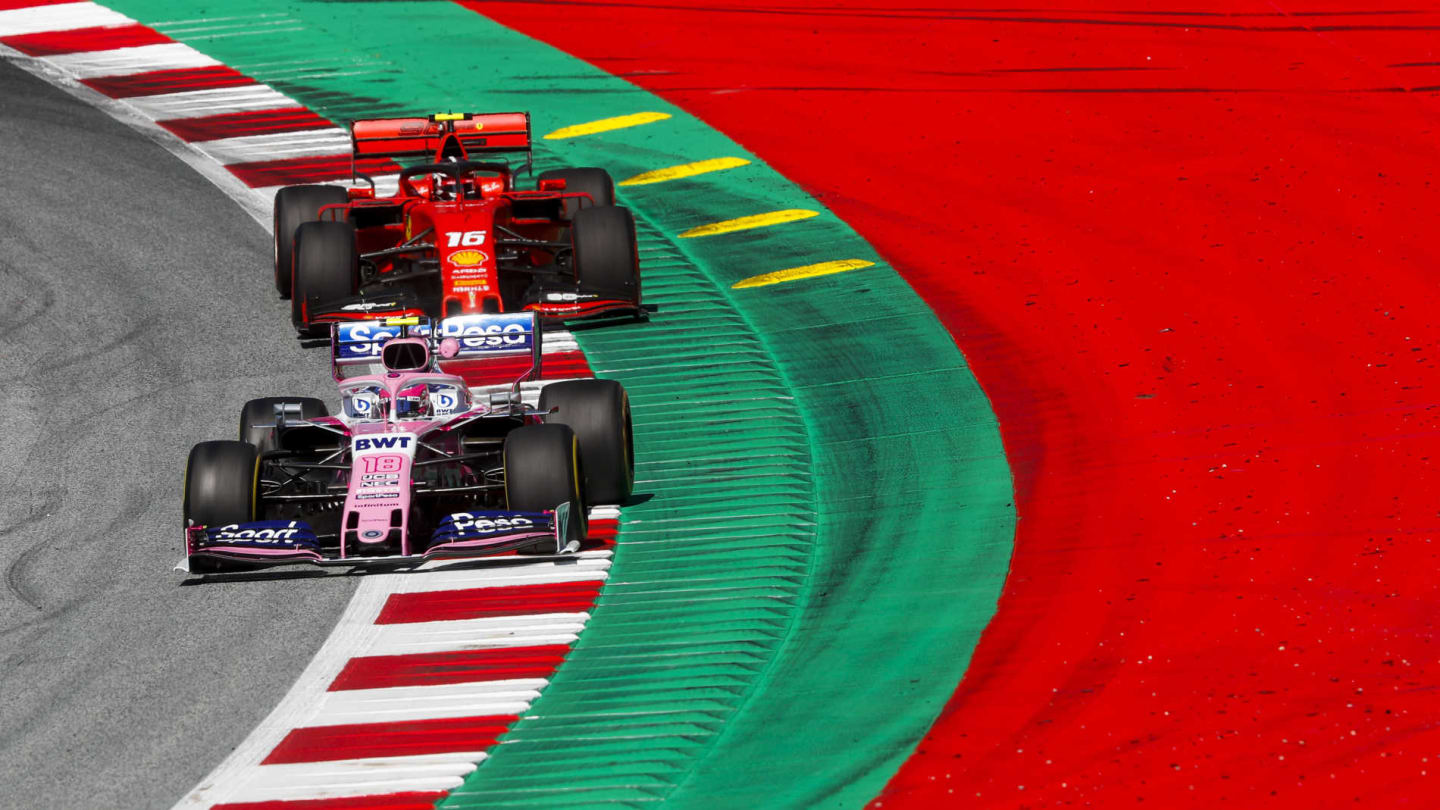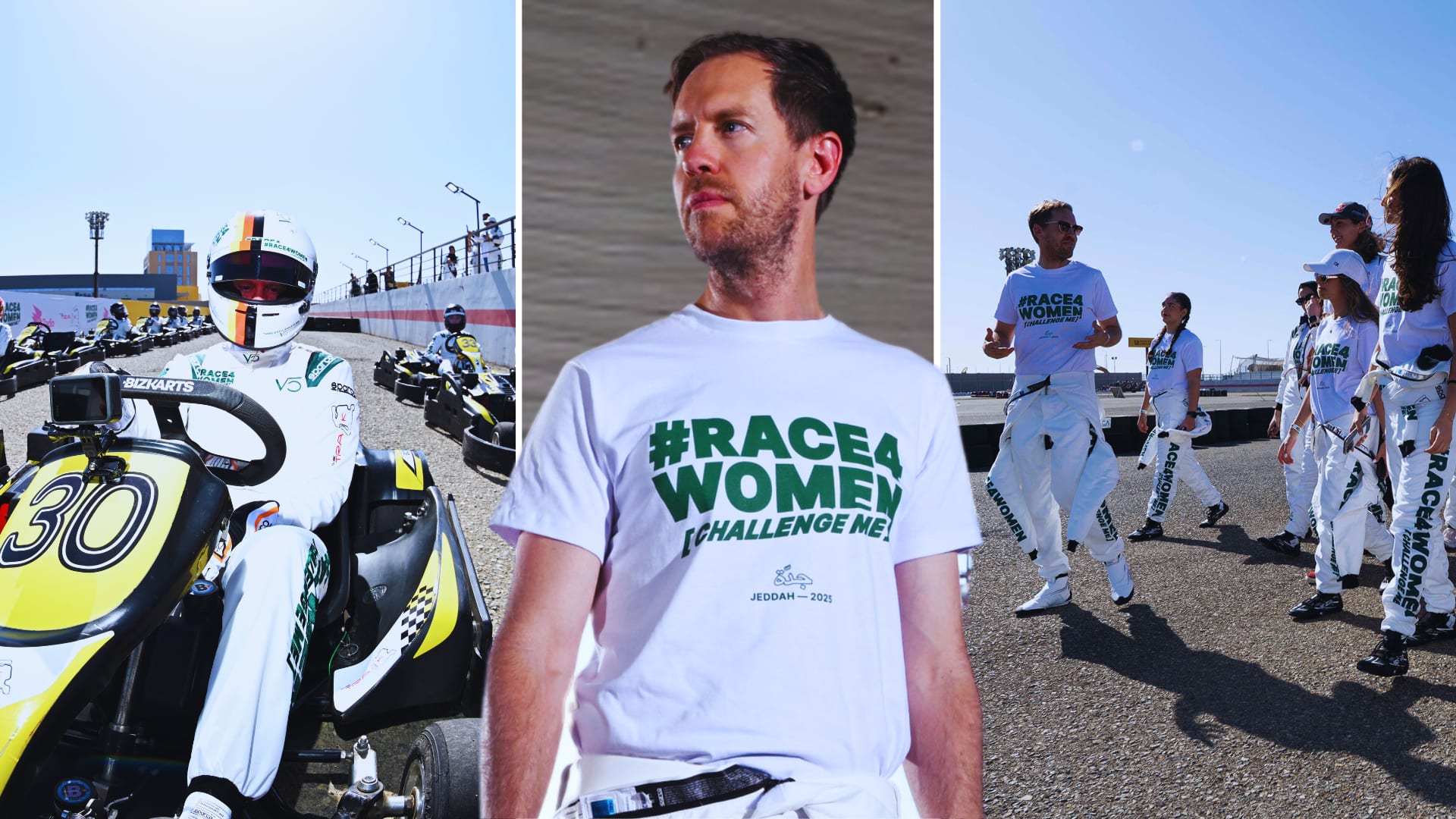
18 - 20 April
News
New F1 rules ‘will definitely allow us to compete’ with top three teams, say Racing Point
Share

New financial rules set to come into play in 2021 have got the smaller teams in the paddock licking their lips about the possibility of being in the mix for podiums and race wins in the near-future – with Racing Point Technical Director Andrew Green confident that his squad will be one of the best placed to take advantage.
Following the announcement that the new rules would feature an even lower budget cap than the $175 million previously planned, Green, in the latest episode of F1’s official podcast Beyond The Grid, explained how Racing Point were perfectly set up to capitalise on the new financial regulations, compared to the ‘big three’ teams, Mercedes, Ferrari and Red Bull.
READ MORE: FIA approve reduced 2021 F1 cost cap and new sliding scale rules for aero testing
You've got to be small, lean, efficient – and I think that's our strength
Racing Point Technical Director Andrew Green
Responding to a question on whether he felt Racing Point – who will be rebranded as Aston Martin from next season, following owner Lawrence Stroll becoming CEO of the iconic road car brand – would need to significantly up their staffing levels from around 450 currently to 800, Green replied: “I think if you'd have asked that question a year or so ago, you'd have said yes – but not now. Not in the current climate and not with the regulations that are coming in, starting in 2022.
“I think those teams now are dinosaurs; you've got to be small, lean, efficient, and I think that's our strength. As far as the financial side of the regulations are concerned, I think they're coming to us.
"They're definitely going to allow us to be able to compete with what used to be big teams, because they can't be big teams anymore. They're going to have to come back down, and get much closer to our level.”

Giant-slaying performances – like Sergio Perez's podium at the 2016 European Grand Prix with Force India – are what the squad are known for
Racing Point can trace their roots back all the way the Jordan team that debuted in Formula 1 back in 1991 – with Green himself having been in situ at the team then.
And with the Silverstone-based squad having always worked with smaller staffing numbers than their front-running rivals, Green feels that the knowledge of how to operate efficiently will put them in good stead when the 2022 season rolls around.
READ MORE: Aston Martin F1 team ‘will need to be competitive from the outset’ says Stroll
“We've been doing it [operating efficiently] for years,” said Green. “We've been at this level for a very long time, and I think we do a reasonable job at it. By no means am I saying we do the best or couldn't do better, of course we could.
F1's new 2021 rule changes: The five key things you need to know
"But we have been doing it a long time and I think we've put systems in place and groups in place who know how to work in a cost-driven environment, and I think that's going to help us.”
Green’s comments come at a time when some are suggesting that Aston Martin could be in the running to snare the services of Sebastian Vettel, who a few weeks ago announced that he would be leaving Ferrari at the end of the 2020 season, with no confirmation yet from the four-time German about where– if anywhere – he will drive for 2021.
READ MORE: David Coulthard on why Vettel to Racing Point could work
More on rule changes for 2021
- FIA approve reduced 2021 F1 cost cap and new sliding scale rules for aero testing
- REVEALED: The key performance area being closed off as F1 trims 2021 downforce levels
- How F1's new sliding scale aero testing rules work – and what impact they will have on racing
- The 2021 F1 cost cap explained – what has changed, and why?
- F1's new 2021 rule changes: Five key things you need to know
YOU MIGHT ALSO LIKE
News ‘If you perform, everything is good’ – Russell responds to speculation over new Mercedes contract
News ‘This track will always be special to me’ – Bearman reflects on returning to Jeddah one year on from rollercoaster debut
News 'I understood why they call him the Iceman' – Antonelli opens up on experience of meeting namesake Kimi Raikkonen
News United States Grand Prix headliners confirmed as 36 hours of entertainment returns to COTA








